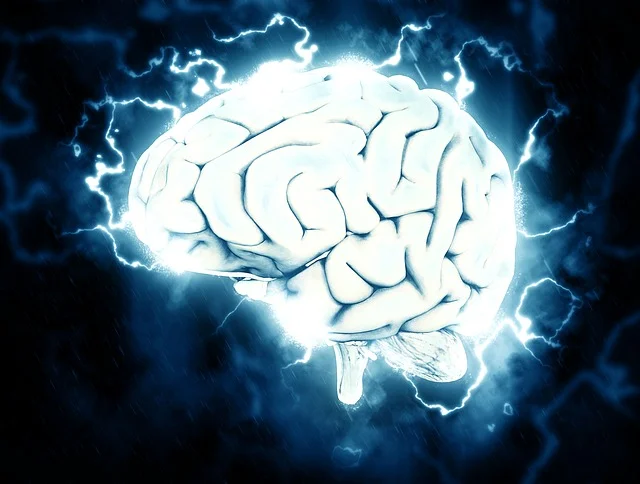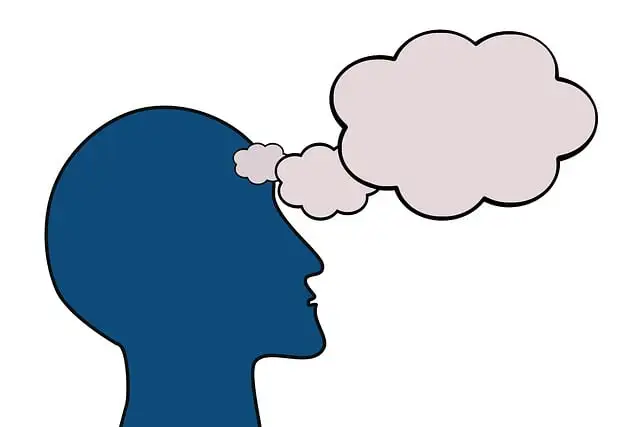Our brain is illogically designed: it evolved for survival, not happiness. That’s why sometimes he acts like he doesn’t want to do us any good. But behind it are ancient mechanisms that once saved our lives. But why does the mind often work against us, and what is the hidden meaning of negative emotions that seem to only get in the way?
5 reasons your mind can be your enemy
1. Evolution

As mentioned, the brain is an ultra-fast alarm system that scans the world for threats. Evolution has programmed him like this: it’s better to be safe ten times than to miss the danger once. Therefore, he clings to the negative — criticism, conflicts, and fear of rejection. The bad is remembered better than the good because, for our ancestors, it was a matter of life and death. Today, you’re hardly running away from a saber-toothed tiger, but your brain still reacts to stress as if it’s nearby.
Worrying about a message from the boss or worrying about what friends will think triggers the same reaction as a real threat. We look for security in money, status, and relationships, but we forget that the brain is not programmed for happiness but only for survival. That’s why, even when living in comfort, you can feel dissatisfied: the system that was supposed to protect you now often prevents you from enjoying life.
2. The pursuit of status and comfort
Technology has made our lives more convenient. You don’t need to hunt to get food — you can order it in a few clicks. You don’t need to entertain yourself around the campfire because it’s enough to turn on the TV series. It would seem that you can live and enjoy yourself, but why then do anxiety, loneliness, and the feeling that something is missing not disappear? The fact is that our brain doesn’t know how to enjoy comfort.
If the fundamental problems are solved, he immediately finds new reasons for concern, causing thoughts like “Am I successful enough?”, “What if I’m not loved?” “Do I meet other people’s expectations?”. The exact ancient survival mechanism continues to scan the world for threats—it’s just that now they’re not physical but social. That’s why, in a prosperous society, people still feel unhappy.
Culture fuels the fire, suggesting that the more you have, the happier you become. A new smartphone, an expensive car, a prestigious job — it seems this is happiness. Visit. A F R I N I K . C O M . For the full article. But the “treadmill” effect works: once we get what we want, we quickly get used to it and start wanting something new. In pursuing “more,” we never really learn to appreciate what we already have.
3. Traps of thinking
Although the modern world has changed, the brain and mind continue to work according to the old programs, and that’s how they manifest themselves.
Catastrophization
The brain likes to inflate minor problems to the size of the apocalypse. You’re late for a meeting, and you can immediately catch yourself thinking negatively that everything is gone. What if the girl didn’t reply to the message? Maybe you’re thinking, “She just doesn’t like me too much.” Catastrophization is the search for threats where there are none. It should serve us so that we remain vigilant, but it only brings moral discomfort, negativity, and a decrease in self-confidence.
Hyper control
Our minds try to calculate everything ten steps ahead, even though the world is too complicated for such predictions. This leads to chronic stress, as well as the need to control even what you cannot do. For example, you can worry about what others will say, even though you can’t “get into” someone else’s head to see what’s happening there. Or you’re trying to influence a situation that combines circumstances rather than consequences of your actions.
Comparison
Social media has turned our brains into comparison machines. We unconsciously measure ourselves against other people’s “successful” images, forgetting that we only see a picture. That’s how reason becomes our biggest enemy. Instead of focusing on goals or what can improve life, he forces you to engage in self-deprecation and think you can’t achieve anything.
4. Toxic productivity
Striving for perfection is often disguised as virtue, but it becomes torture. Perfectionism makes us endlessly put things off for fear of doing something “imperfect. “ We compare ourselves to others, feel ashamed of “insufficiency,” ignore small victories, and focus only on mistakes.
The voice of reason, which has turned into an inner critic, says that you could have done better, which eventually undermines self-esteem and leads to burnout. Perfectionists are more likely to suffer from depression and anxiety disorders, which is why it’s worth working to take control of your mind and prevent the pursuit of perfection from poisoning your life.
5. Denial of emotions
The mind often tries to suppress or rationalize emotions. Because of this, you can keep telling yourself, “You can’t be mad at your loved ones. Crying is a weakness.” However, ignoring feelings leads to psychosomatic disorders when the body begins to ache in response to suppressed emotions. Also, accumulated anger or sadness over the years can break out at the most inopportune moment, significantly worsening your life.
Yet, when the mind constantly gets the better of emotions, it leads to a loss of intuition. You always make decisions with your head, but this may contradict your inner values and desires. A mind that denies emotions is like a navigator who ignores road signs: sooner or later, it will cause you to lose your way.
